
Discovering your menstruation as a spiritual practice
Yasmine understands her menstruation as a spiritual practice and shares in this interview how she is connecting more with her own body through cycle awareness.
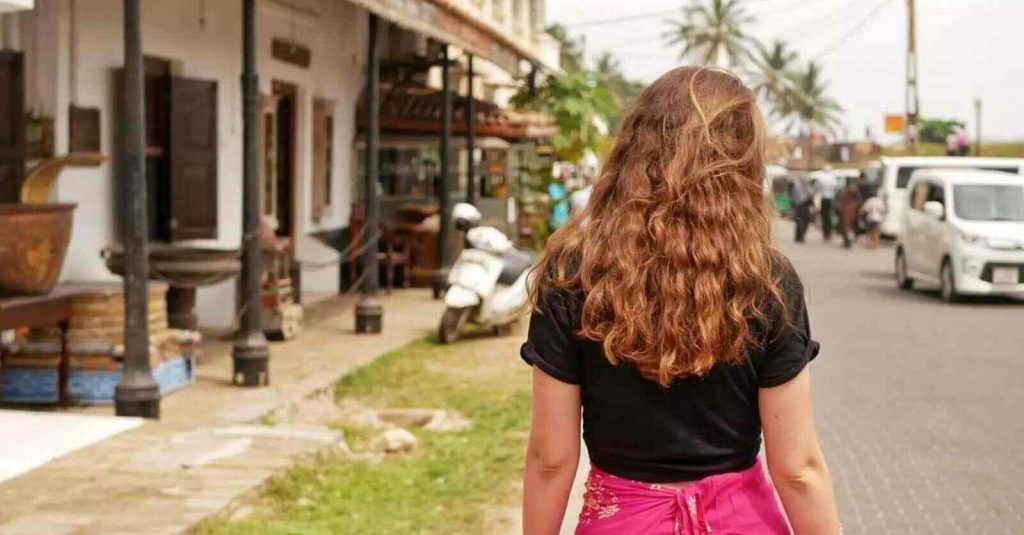
To not not use tampons, pads or menstrual cups anymore! Are you ready to voluntarily give up all these products during your next menstruation? Probably not! Most people can’t imagine how free bleeding should work. Only a few menstruating people know this alternative way and practice it. Basically, however, this natural method is as old as humankind itself.
When practicing free bleeding, period products such as tampons, menstrual cups or sponges are voluntarily not used during menstruation. The blood is therefore not collected by a foreign item inside or outside the body. The blood is rather given ‘free flow’. However, this does not end in bloody trousers or smeared bed linen. Because there is good news here: the basic assumption that menstrual blood is literally unstoppable is not quite correct!
The menstrual discharge (blood plus lining of the uterus) is first collected at the cervix and then expellled in phases. Through a conscious perception of one’s own body, it is possible to feel when the blood is flowing. Through muscle strength the blood can also be intentionally held back to a certain point. There is a slight pressure in the abdomen, which feels a bit like a full bladder. During free bleeding, the menstrual blood is finally discharged directly on the toilet by relaxing the pelvic floor. The conscious ‘release’ of the menstrual blood, just like any other body fluids, can therefore be controlled. Does this sound too good to be true and yet somehow unimaginable for you? In the calm (and practice!) lies the strength for free bleeding.
To be able to learn how to free bleed, you need a good awareness of your body and probably several cycles to practice. And especially at the beginning many quiet moments to develop a good (self-)awareness for your own body and to recognize changes. The best thing to do on your lighter days is to practice at home, so that you don’t have to worry about where to find the next toilet. If you still feel insecure at the beginning, you can, for example, wear a (washable) panty liner as a backup or simply go to the toilet every hour and see what happens. You will be surprised by what your body can do!
And at night? Thanks to gravity, the blood flow is much lower when you lie down than during the day. If you are lucky, you can simply sleep through the night on lighter days. But to be sure, go to the toilet just before going to bed and right after waking up. On heavier days, your body wakes you up – just like when you usually have to go use the toilet at night.
Fair enough. That’s a pretty good question! There are quite different approaches to why people choose to free bleed. The reasons are often very personal and range from discomfort of traditional menstrual products to mindfulness to political or feminist views. Over time, free bleeding also has a positive effect on the period itself. By menstruating without the use of strange prodcuts inside the body, menstruation is given back its naturalness. Less menstrual pain and a shortened menstrual period, for example, are health benefits of free bleeding. Still not quite convinced yet?
Free bleeding is also by far the most environmentally friendly and natural way to make your period more sustainable. Because by doing without conventional disposable products, enormous mountains of waste can be avoided and our environment protected. Free bleeding for the sake of the environment is a good reason! Not using disposable products during menstruation does also mean that you do not have to buy new menstrual prodcuts every month, which is better for your wallet. It’s a win all around!
Britta shows you step by step how you can learn Free Bleeding too!

When I tried free bleeding for the first time, I was totally excited that it really worked. And I want to tell the whole world about my experiences with free menstruation (that’s why I wrote this text!) because I’m a bit proud, too. It’s like a little success stroy every time and I’m fascinated by what my body is capable of doing. I have the feeling that by free bleeding I pay much more attention to my menstruation. It becomes a conscious part of my everyday life and is no longer something I want to hide or goes unnoticed.
The paradox of free bleeding, however, is that on the one hand menstruating people consciously forgo what others involuntarily have to do without. Lack of money and insufficient supply as well as spiritual activism and feminist approaches actually lead to the same result: menstruation without period products. Being able to make this decision consciously and voluntarily is an absolute luxury. To choose free bleeding admist the variety of menstrual products in Germany is a ‘trend’ based on privileges. As a result, the free bleeding movement is sometimes criticized. However, if we are aware of this privilege, we can use it, just like Madame Gandhi at the London Marathon 2015, as a sign of protest and resistance:
‘I ran with blood dripping down my legs for sisters who don’t have access to tampons and sisters who, despite cramping and pain, hide it away and pretend like it doesn’t exist. I ran to say, it does exist, and we overcome it every day. The marathon was radical and absurd and bloody in ways I couldn’t have imagined until the day of the race.’
Free Bleeding as a political and above all feminist statement! Madame Gandhi’s aim at the marathon was to attract attention through ‘shock’ (aka blood) and to start a dialogue about menstruation. Because only through conversations can the silence and taboo about menstruation be broken. The free bleeding movement therefore encourages a more open approach to menstruation and can contribute to more educational information in society.
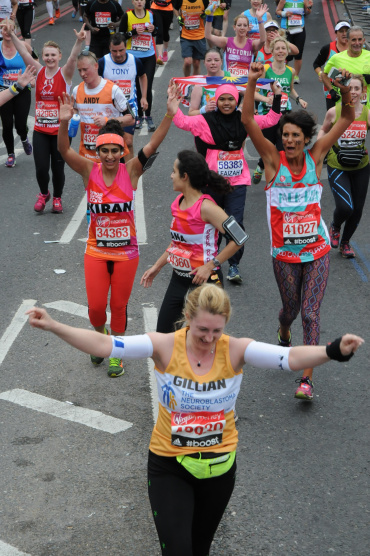
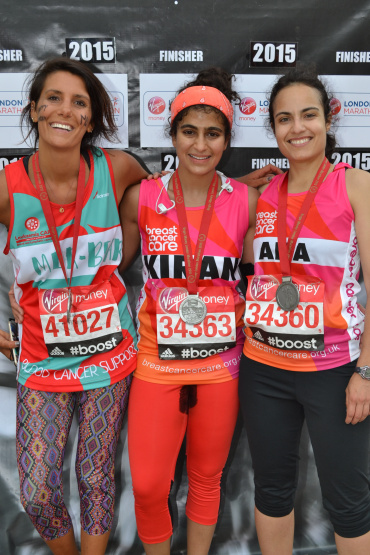
Photo Courtesy by Madame Gandhi
My message is not that from now on everyone should only bleed freely (although the environment would thank us very much!). Rather, I wish that every menstruating person feels safe and empowered enough to choose the best method or product(s) for themselves during menstruation. Free bleeding will probably not be the right choice for many people and that’s okay! But who knows, maybe you’ve become a little curious now and just let the menstrual blood run free during your next cycle? Free bleeding is definitely worth an experience! Optional: If you have any personal questions, please feel free to message me at any time. With this in mind:
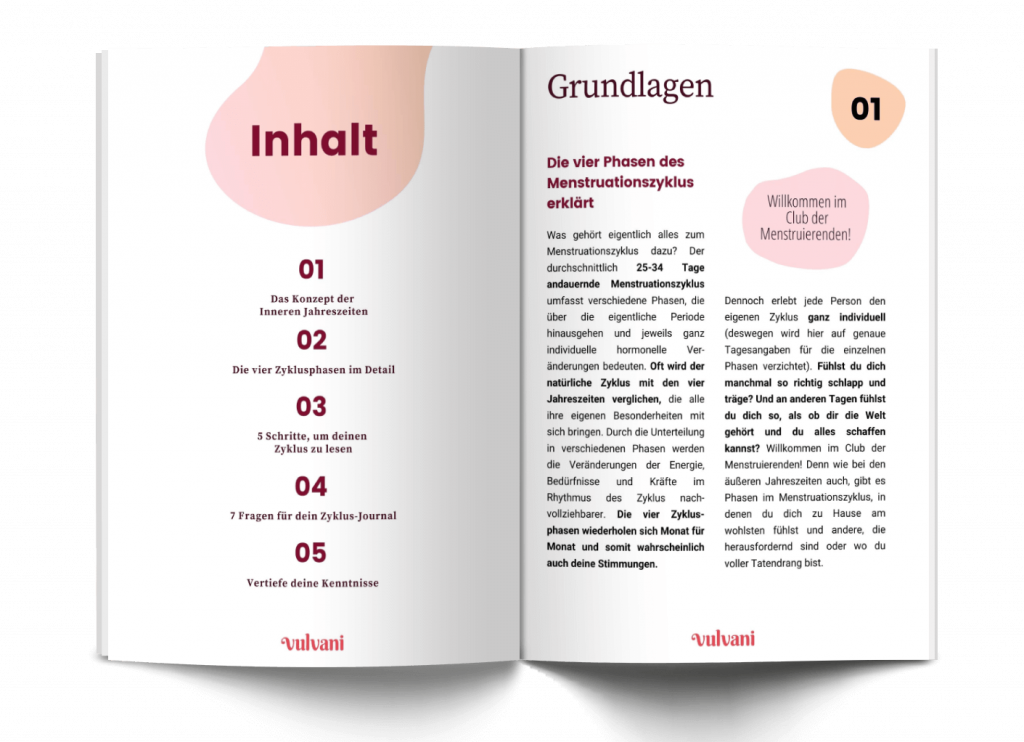


Yasmine understands her menstruation as a spiritual practice and shares in this interview how she is connecting more with her own body through cycle awareness.

What options are there for male birth control? Ailsa delivers an overview of what is available now, and what may come in the future.
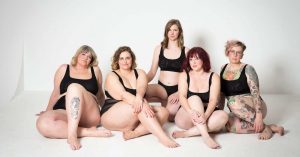
Sustainable underwear? The founders of TUKEA talk about fair labour conditions, body diversity and body literacy.
…and empower countless women to make empowered choices about their bodies!


15 Comments.
How dare you act so irresponsibly and unhygienic! You are not a child, but rather a grown woman that should know better. I tnink you should question your act of defiance and stop acting like a bloody whore.
First of all, there is no need to insult anyone here.
Unhygienic?
How is releasing any bodily fluid directly into the toilet more unhygienic than collecting and keeping it inside or just outside your body for a couple hours before disposing it somewhere else?
Based on your statement, using a diaper would be more hygienic than going to the toilet.
I am not sure many scientist or doctors would agree with you 😉
R dalebout is some silly bot trying to be provocative. **TRYING**
Please explain how taking control of one’s menstrual cycle makes you a whore. You want to judge someone then here I’m judging you – you are an asshole of the worst kind, most likely a crusty Bible thumper that believes women should be submissive to men and children should be seen but heard. Yikes. Stay off the internet you troll. Why even comment if you have nothing constructive to say. Idiot. (Apologies to Jamin I just cannot today)
Can we not insult Christianity I swear it like every where I look some one is making fun of it. You won’t see anyone doing this to Muslims, Jews etc. I can’t for the life of me understand why everyone can manage to repect other religions but its cool to make fun of other people beliefs christians. It’s disgusting.
What a disgusting comment, do you understand this article as a whole?
Whore?!!!! What an AWFUL comment! Her article is well considered! You are gross 🤮
Okay this is all well and good – I don’t find menstrual products any more comfortable (or more environmentally friendly) than the next person – but can we please have a how-to? Because I don’t see free-bleeding working for me if it means bleeding on my chair at work or while sitting on the train. I really like the concept and spirit of this but the practicality of it is another thing.
Hi Claire,
fair point. We do have many other articles with additional information about free bleeding, including How-to’s. You might take a look here:
https://www.vulvani.com/en/how-does-free-bleeding-work-in-everyday-life-a-look-at-reality
https://www.vulvani.com/en/my-personal-experience-with-free-bleeding-a-love-letter
We even offer an online course, where Britta explains how it works from her own experiences:
https://www.vulvani.com/en/courses/periods-without-products-learn-free-bleeding
Hope that helps!
Hello! If you do a lot of sitting, free bleeding is actually perfect for you, or it would be in my experience. I always use a panty liner regardless (because there’s usually ‘some’ spotting that occurs) but I have, and regularly do, only use four of them for an entire period (changing it for a fresh one each day with my underwear). After I was done having children, I noticed that my body naturally began ‘holding’ my flow, only releasing it when I used the toilet, my muscles acting much like a menstrual cup. I rotate between light manual tasks and sitting periodically for my daily routine, visiting the restroom about every 90 minutes to 2 hours to ‘empty’ my blood flow. Even on my heaviest day(s), this works perfectly. If I happen to go past that time frame, I will feel the blood start to release, in which case I will squeeze my muscles like you would for a keegle, and get to the restroom. I do recommend using at least a light maxi pad on any days where you will be quite active and/or a bathroom will not consistently be available. Do be forewarned that while this method works tremendously well, if you are not paying attention on your heaviest days, you will get a gush of blood that not even a thicker maxi pad can adequately absorb, it simply releases too quickly. Happy bleeding!
This article is fine and really quite interesting. The one thing that put me off and stopped me taking it seriously was the repeated use of the phrase “menstruating person”. Why not just say “woman”?? The only time a man would menstruate is if he was a trans woman and had actually had a transplanted uterus and vagina successfully put into his body (which is pretty rare) and even then he would likely call himself a woman. So let’s just be real, please. WOMEN have periods. MEN don’t.
Hi Spider, thank you for your comment.
We choose to be inclusive in our langauge. Why we are writing the term “menstruating person” is explained here: https://www.vulvani.com/en/why-are-we-using-the-term-menstruating-people
Please note: We do not want to replace the word woman. Menstruating people or person is just a way to describe a group of people with similiar characteristics, just like traveling people or working people etc.
Boooo! 🍅🍅🍅🍅
I’m a man and I have periods- so thank you for using inclusive language
Actually, there are genetic variances that would account for a male/man experiencing a monthly period. Believe it or not, there are men who are born with female reproductive organs. The man whom I know of personally with such a variation is a happily married, heterosexual father of two who is often assumed gay because of his higher pitched voice. Being ‘inclusive’ doesn’t always translate to the author trying to eradicate the truth, in this case, it actually makes sense. Are these genetic variances the norm? No, they are not. But to ignore them and/or pretend they don’t exist only aids YOUR comfort and mental/emotional security, it does absolutely nothing for the individual living with it.